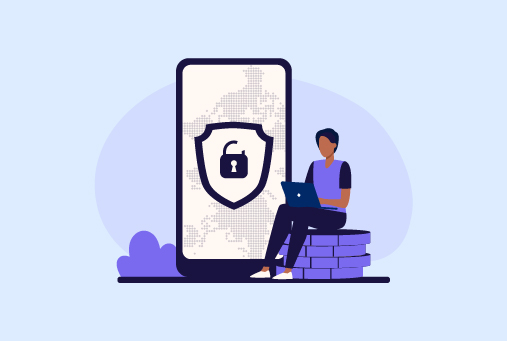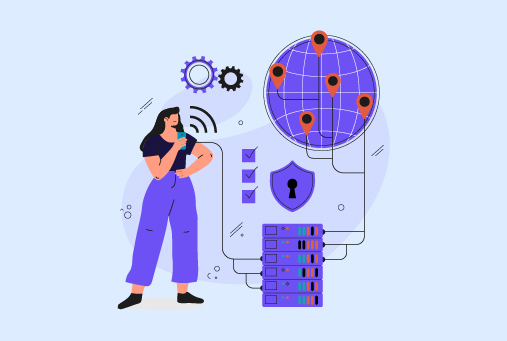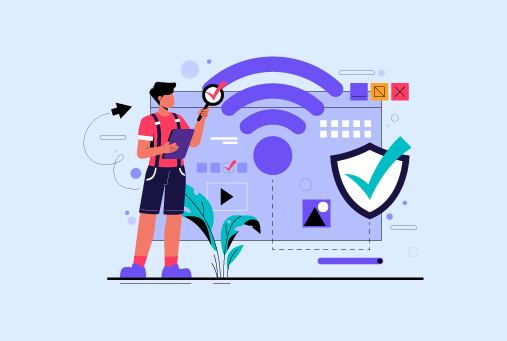
How VPN Help Students Circumvent Blockades And Geo-Restrictions?
Students conducting research online often encounter certain websites being blocked, which can be especially frustrating when these resources contain essential research materials. Sometimes, this issue stems from local internet restrictions, while in other cases, the website only works in certain regions; when this roadblock appears, it may seem insurmountable, but virtual private networks (VPNs) often offer solutions.
Cybersecurity studies involve learning which tools can best protect data, which is why many seek digital security degrees to remain up-to-date with changing threats online. Furthermore, cybersecurity skills may provide ways around web blocks; using a VPN as an encrypted tunnel helps mask traffic flow for less browsing activity tracking and more freedom across the web.
Modern education relying heavily on digital tools like videos, articles and group chats which may be subject to location filters that restrict students in certain countries from accessing certain material – rendering half the material unavailable and making learning impossible! VPN services often remove such barriers allowing students to explore academic material freely without feeling restricted by any restrictions that may exist within it.
Understanding VPN Technology
A Virtual Private Network, or VPN for short, provides a secure tunnel between an individual device and the wider Internet. Data travels along this tunnel encrypted form making it more difficult for anyone to read or intercept it – something especially helpful if there are blocked websites at home or school. With access to this extra layer of privacy provided by VPN technology, students may gain access to websites or digital services without disclosing their location – something especially beneficial if certain websites exist that need to be unblocked.
Installation of a VPN typically entails downloading software, selecting a server location and connecting with one click. When connected, one’s Internet Protocol (IP) address changes giving the impression they are somewhere completely different.
Why Students Require a VPN
Many schools impose internet restrictions to ensure students focus and block dangerous material from reaching them; unfortunately, such filtering tools also obstruct educational sites students need for education purposes. Students in such an environment require reliable means of accessing the knowledge they require.
Students benefit from VPN protections when it comes to online privacy and resource access worldwide. When emailing peers or collaborating on study groups, encryption provides peace of mind.
This approach offers students struggling with sensitive topics the support they need, while travelers needing information from home regions while traveling abroad can also find this approach invaluable.
Geo-Restrictions
Geo-restrictions restrict what users can view or do online depending on their physical location. Streaming services, educational tools, and journals that work only in certain countries can make research papers less efficient, but by connecting to another server using VPN accounts from around the world, users may gain full access.
Switching locations is typically legal, provided it does not violate local or website terms of service agreements. Before changing their locations, students should make sure to comply with all rules – breaking them may jeopardize educational opportunities.
Best Practices for Utilizing a VPN
Although VPNs can be useful tools, their proper usage requires careful consideration. A key step in choosing a trustworthy provider includes selecting a free version with hidden costs like selling user data; paid services often offer better security features and customer support services than their free counterparts.
Verify your provider provides maximum safety by reviewing their encryption standard and privacy policy to make sure no logs are being kept.
Students can select server locations that best meet their study or project needs by using a VPN on multiple devices – laptops, tablets, and phones alike – at once. By taking this extra precaution when accessing digital content across networks, students can feel more at ease as they navigate digital content across networks.
Consider Potential Downsides
While VPNs can be helpful, students should also be mindful of any potential downsides before making their commitment to one. Some services may slow internet speeds by having data travel between distant servers – this may make streaming or attending virtual classes frustratingly slow. Furthermore, certain websites detect and block VPN traffic, limiting access – this means students should consider these potential drawbacks before committing themselves fully to a particular provider.
Free VPNs may pose potential privacy threats, including tracking user activity or showing ads without consent. Conducting research into each VPN’s reputation and carefully considering all aspects is the key to selecting an ideal option that keeps users secure online.
VPNs offer students an effective means of bypassing online barriers, including campus firewalls or geo-restricted material. By hiding their true location and disguising themselves to access resources from anywhere – not simply out of convenience but for full knowledge acquisition on the Internet itself – perhaps this technology will enable future learners to excel.





